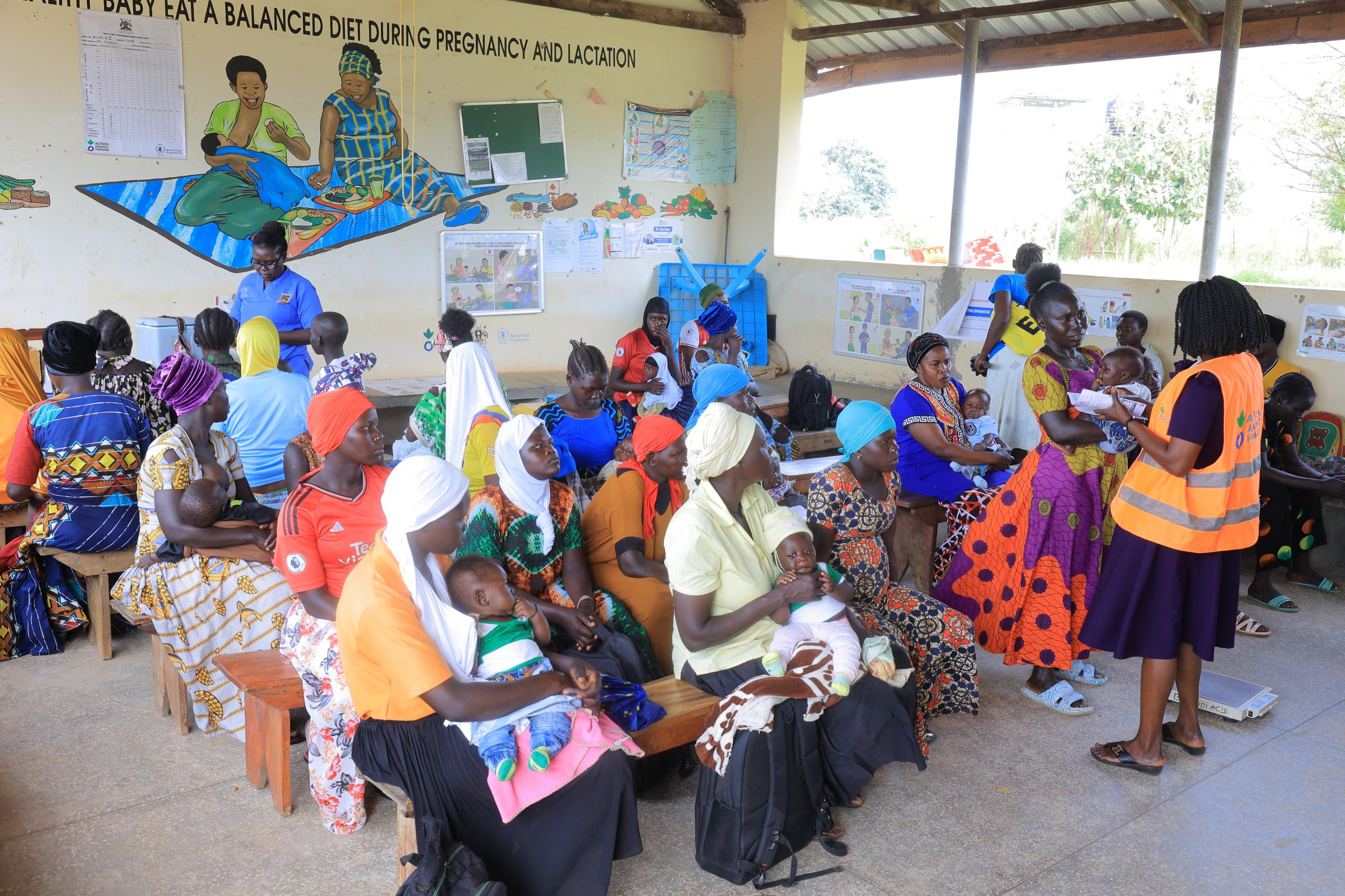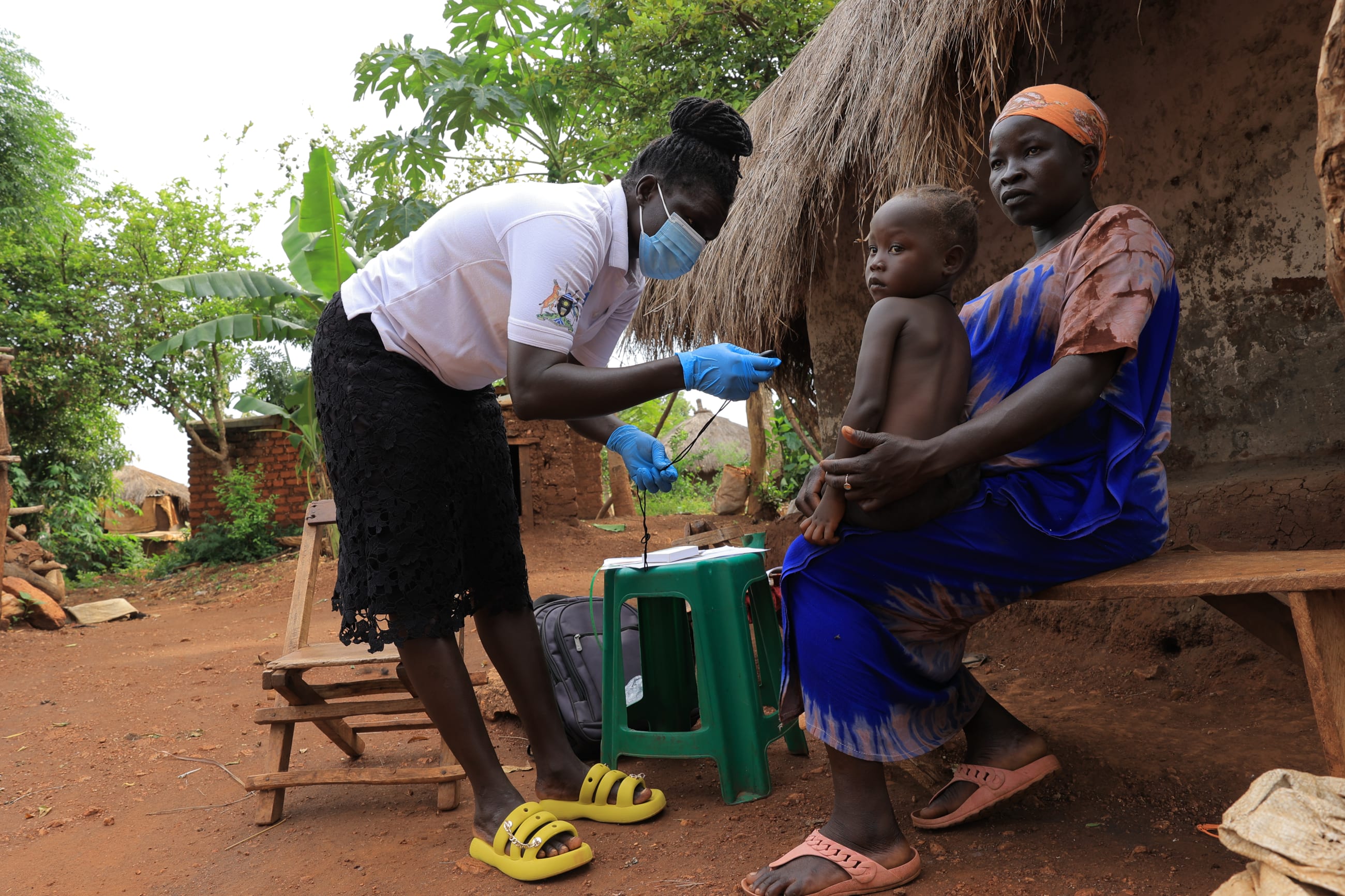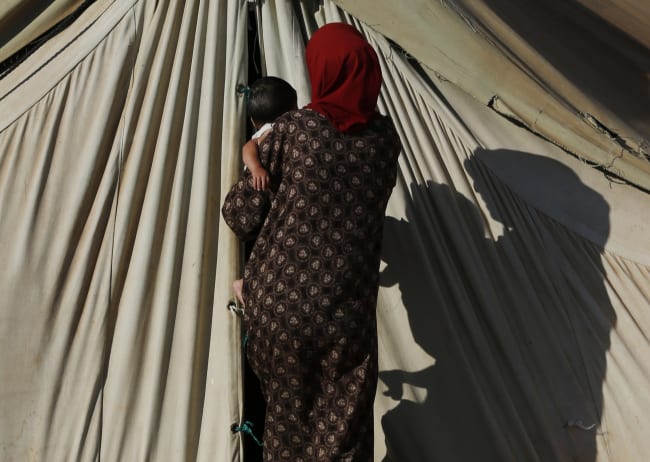Uganda has the largest refugee population in Africa and the fifth largest in the world. The East African nation has been widely praised for its open-door refugee policy and progressive health care. Under the country's 2006 Refugee Act and 2010 Refugee Regulations, refugees and asylum seekers have access to the national health and education systems, the right to work and move freely throughout the country, and a small plot of land to cultivate along with food and financial support.
Yet in recent years, civil wars in neighboring South Sudan and Democratic Republic of Congo (DRC) have strained these programs, ballooning the refugee and asylum seeker population—from 386,000 in 2014 to more than 1.7 million in 2024, an almost fourfold increase.
Making matters worse, in March 2025, the U.S. State Department announced that it will terminate most domestic and international contracts held by the U.S. Agency for International Development (USAID). The U.S. foreign aid freeze will have a devastating impact on Uganda's refugee communities and the aid organizations that serve them. UNHCR—which plays a central role in delivering essential services to displaced populations in Uganda—receives roughly 40% of its total budget from the United States, as does the International Organization for Migration and the World Food Program (45%).
The cuts to USAID underscore the vital importance of sustained public-private partnerships that underpin Uganda's progressive refugee policies. A vast ecosystem of the United Nations, global nongovernmental organizations (NGOs), local civil society, and government partnerships support Uganda's integrated health system, helping ensure program continuity and effectiveness even during periods of profound crisis.
Bidibidi Refugee Settlement: More Than a Temporary Refuge
In 2016, Uganda's Yumbe District established the Bidibidi refugee settlement, less than 30 miles from the northwest border, to host the rapid influx of South Sudanese refugees fleeing civil war.
"We fled South Sudan because of the conflict [and] the killing of civilians at that time. We embarked on our journey on foot and on our way, they were killing people. The kids were tired, there's no food to give them. We reached [the border] and we were transported to Bidibidi for settlement," said refugee Tabu Rose.
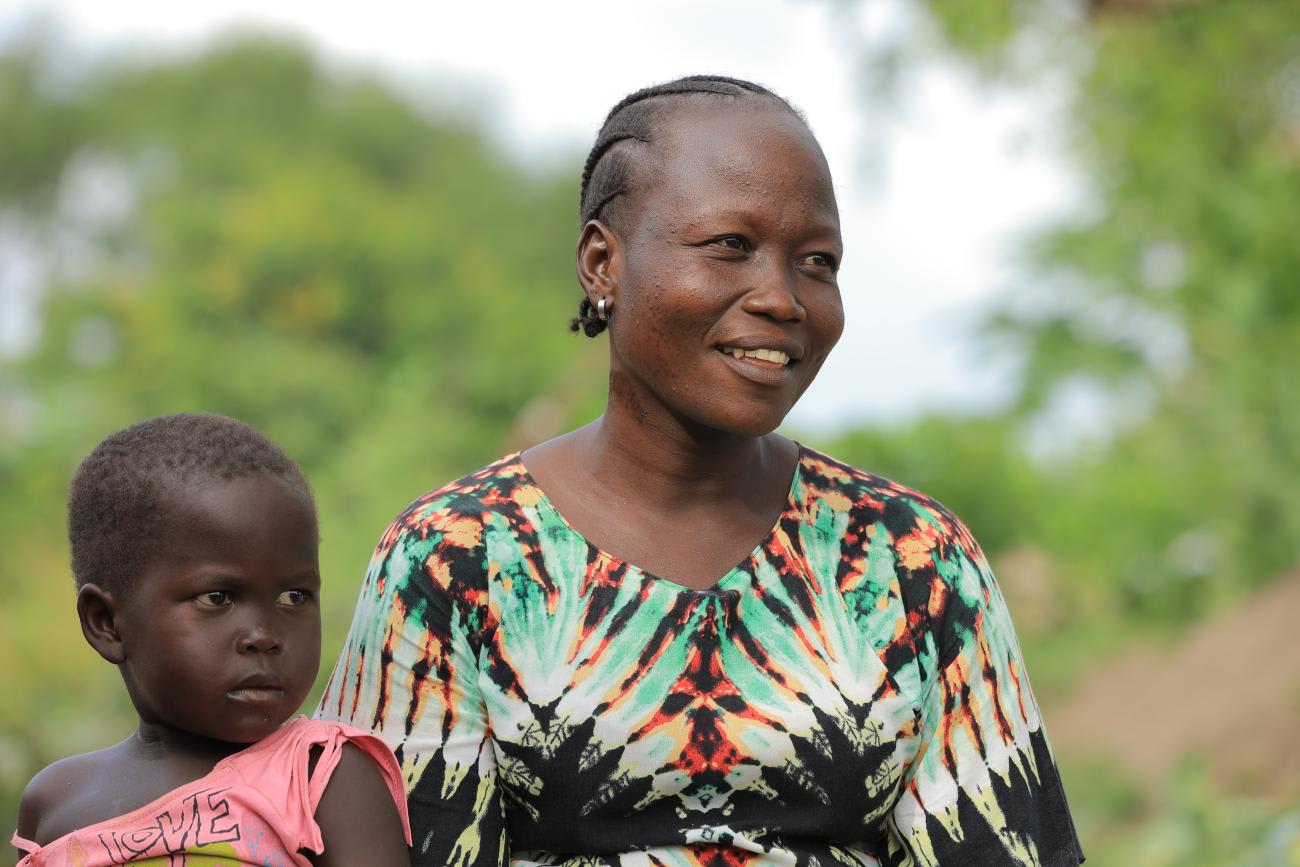
In the five months after its opening, the settlement welcomed more than 280,000 refugees. Having reached capacity, Uganda then stopped accepting new arrivals. Yet all residents can live there permanently because of Bidibidi's status as a settlement rather than a refugee camp.
Across Bidibidi's five residential zones, clusters of mud-brick homes are evolving into permanent communities with varying levels of infrastructure, employment, and civic participation. Some are developing permanent water systems, solar plants, schools, churches, and music and arts centers. At the same time, most Bidibidi residents still face fundamental challenges in their day-to-day life, including poor sanitation, unpredictable food supplies, difficulty accessing health clinics, vulnerability to extreme weather, and lack of jobs and vocational training.
In Bidibidi, a Coordinated Effort to Improve Health for Refugee Families
Given the settlement's proximity to the porous borders of South Sudan and DRC, a risk for infectious disease spread remains persistent. Most residents (84%) are women and children, and thus the demand for pediatric and maternal health services—including malaria case management, childhood immunizations, nutrition programming, and pre- and postnatal care—is disproportionately high.
Few understand the public health challenges in northwest Uganda better than Emmanuel Kerukadho, an associate public health officer for UNHCR who works with a range of United Nations, NGOs, and government partners to design integrated public health programs that meet the needs of both refugees and nationals in the region.
He started working in the region when rates of malaria and malnutrition were at epidemic levels. "When I came [in 2017], you'd find the malaria test positivity rate was 70 to 80%," Kerukadho said. "In terms of the nutrition, most of our acute malnutrition rates were actually at critical levels, at 14% plus. . . . And maternal deaths, they were a common thing."
Through his collaborative work with local government and NGOs, Kerukadho has helped integrate public health programs to ensure that refugee families receive a continuum of services from the moment they enter the country. "I must say a lot has changed in terms of the way we make sure that we deliver the full public health package from the moment they arrive," Kerukadho said.
We've trained them to do surveillance, case monitoring, of malaria and other diseases, and this has really built our capacity for disease detection
Ojjo Zubeir, Yumbe's district health officer
"We make sure that mothers access the maternal health services, and that we have the integrated management of childhood illnesses in the health facilities, targeting the under fives and above fives. . . . I believe we have done a lot in terms of the surveillance, disease, prevention, and control. When we talk about malaria we've seen a lot of successes. We're seeing around 30 out of 100 positive cases, which is really great." Kerukadho also highlights that malnutrition rates have declined considerably and that maternal deaths are no longer as common.
One key to improving health-care access in Bidibidi has been the expansion of community-based care. Throughout Bidibidi, communities select a network of Village Health Team (VHT) members to serve approximately 30 households each. The VHT members conduct door-to-door health education, testing, and treatment. "I love to work for the community because when you see community members go through these challenges, and it's happening all around you—the situation is not good," said Bidibidi resident Gibson Mandela, a VHT member. "So that inspired me to promote community health by sensitizing them on preventive measures."
Through the Integrated Community Case Management (iCCM) program, Mandela trained to diagnose and treat malaria, pneumonia, and diarrhea in children under 5. By proactively addressing malaria cases in the community, VHTs are not only saving lives but also reducing the burden on local health facilities. They serve as a vital bridge between health facility staff and the communities, according to Ojjo Zubeir, the district health officer in Yumbe. "We support VHTs to report any health event in the community, including diseases that are prone to epidemics," Zubeir said. "We've trained them to do surveillance, case monitoring, of malaria and other diseases, and this has really built our capacity for disease detection."
The integration of site-based and community-based care has also benefited uptake of childhood vaccination and nutrition programs. Uganda's immunization program protects against 13 diseases. Such a rigorous program requires persistent education campaigns, both at health centers and in the community, to ensure strong uptake of these vital vaccines.
"We do face challenges sometimes, just making sure that families come for all their vaccinations," said Foni Agnes Kenyi, a health worker at Bidibidi Health Center. "[For] a lot of families, the distance is too long for them to come to the facility. Or maybe the child felt some side effects and cried a lot, so they don't bring them for the next course. This is why we have outreach programs, where we go door-to-door in the villages, making sure that we try to reach every last child."
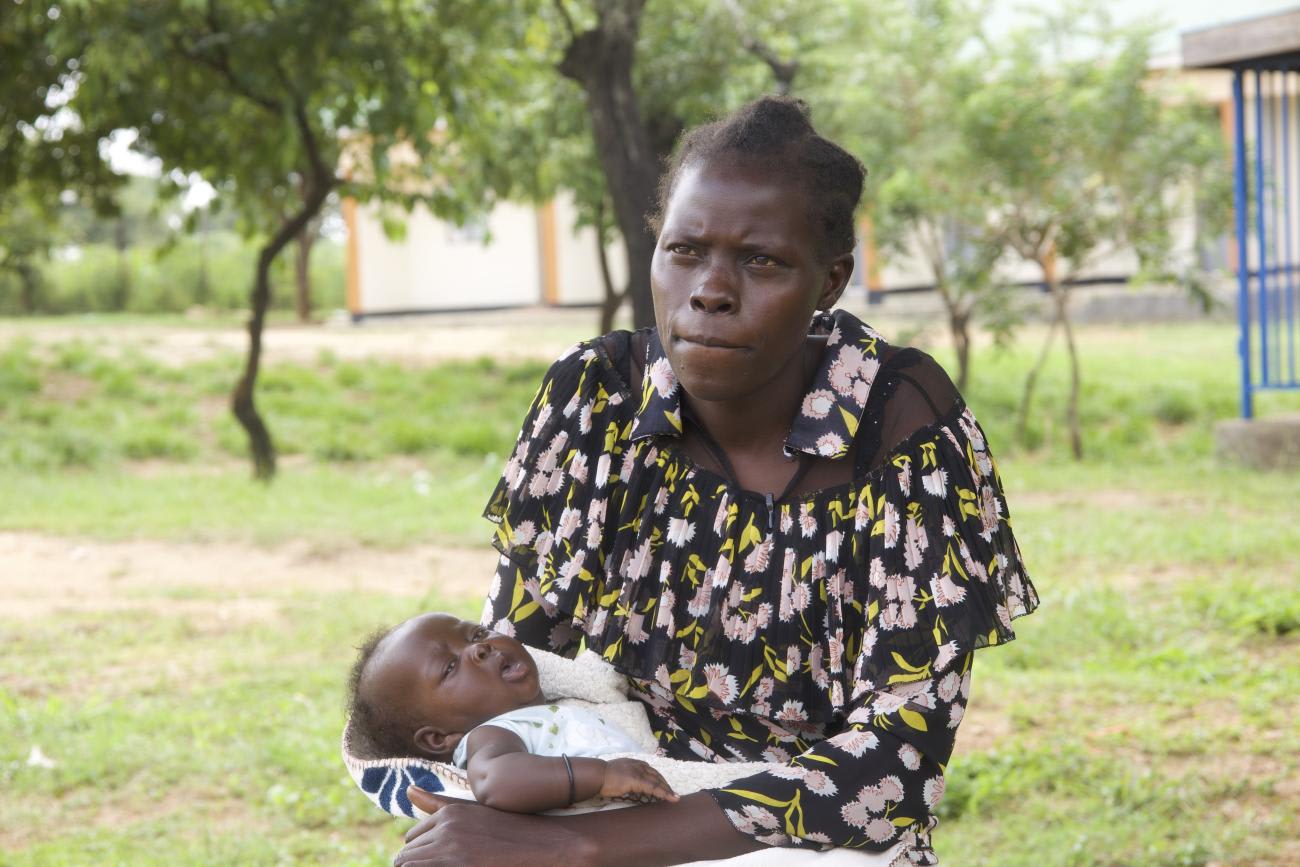
The ramp-up of Uganda's immunization program has had an enormous impact, helping reduce under-five child mortality rates by 42% since 2011 [PDF] (from 90 per 1,000 live births in 2011, to 52 per 1,000 live births in 2023). The program also leads to more frequent interactions with the health system, thus serving as a gateway to other health services, including nutrition programs.
Malnutrition is a major problem in Bidibidi, where approximately 1 in 10 children under the age of 5—amounting to 2,400 kids—are considered severely or moderately malnourished [PDF].
"Their immune systems are compromised. So, they are prone to getting a host of other diseases—like flu, TB, malaria, even if it's just a minor mosquito bite," Faida said.
The integration of nutrition programming has in turn benefited immunization and other health programs, including malaria testing and treatment—the leading cause of outpatient visits in Bidibidi and across Uganda.
A Multifaceted Approach to Drive Down Malaria
Malaria is "responsible for 30 to 50% of outpatient visits and 15 to 20% of hospital admissions" in Uganda. In 2023, according to the World Health Organization, the disease claimed an estimated 15,495 lives in the country, the majority of whom were children under 5. Malaria's burden goes beyond lives lost: it has a significant impact on health systems, workforces, and school attendance. The economic loss in Uganda due to malaria is estimated at $500 million annually, per Target Malaria.
The malaria burden is particularly high in northwest Uganda, where Bidibidi is located. "Seventy percent of our [outpatient department] consultations are actually as a result of malaria," said Jimmy Akuaku, chief clinician at Bidibidi's Jomorogo Health Clinic. "And it has a really serious impact on children under 5 and pregnant women. . . . At the facility level, interventions like malaria education must always be taking place, so that people get to know about malaria: What is malaria? How can they prevent malaria? And they also take these precautions home."
Given its status as a high-burden malaria region, Yumbe District received a relatively robust package of aid interventions, including indoor residual spray (IRS). The campaign covered thousands of households in the area, including the majority of homes at Bidibidi. Opt-in rates for the IRS campaign were exceedingly high, according to Levi Matua, the district's vector control officer, thanks to community engagement efforts that included radio talk shows, engagement of local religious leaders, and door-to-door dialogue.
"When you look at the graph some years back, we were actually lying in the [malaria] epidemic zone." said Matua. "In 2021, we had over 50,000 people affected [by malaria]. Now, I think we are just less than 11,000 since January. . . . People were suffering a lot. But now, especially after the [IRS] campaigns and the recent net distribution, I think the malaria situation to me has really improved. The people in the communities really appreciate it."
Governments and NGOs Pick Up Slack in Wake of USAID Program Suspensions
The Donald Trump administration's decision to terminate USAID contracts has already had far-reaching consequences in communities across Uganda, which in 2023 received approximately $500 million in USAID funding. These funds support a wide range of programs that millions of Ugandans depend on—including vital prevention and treatment interventions for malaria, HIV, and other endemic diseases.
"The [USAID stop work] orders are biting hard," said Jimmy Opigo, the head of Uganda's National Malaria Control Program. "Mosquito nets for mothers and under-five children can't move. Antimalarial medicines, which are in warehouses, can't be moved to health facilities. Indoor residual spraying has been put on hold. Technical assistants have been laid off or asked to take leave. It's tough moments."
Additionally, the Ugandan Ministry of Health announced that it plans to shut all dedicated HIV/AIDS and tuberculosis clinics in the country; further, many stand-alone pharmacies supplying antiretroviral drugs are also closing.
Refugee settlements like Bidibidi have already seen widespread service disruptions and layoffs, according to Bidibidi resident Yesua Aliki. "Most organizations working in Bidibidi get U.S. funding so they will have to pack their bags if this continues. That will impact food aid, health care, education, livelihoods—everything," Aliki said in a story published by Context. "Health facilities have lost staff and volunteers. Some facilities run by aid agencies will shut down. So the freeze will lead to more people dying or suffering unnecessary pain because they can't afford to go to the [private clinics] or buy expensive medicines."
UNHCR Uganda recently reported that they've already laid off 250 health workers and scaled back a wide range of services, including early childhood caregiving and legal aid. These cuts come at a time when Uganda is "witnessing a sharp increase in the number of Congolese refugees crossing its western border due to increased insecurity in the eastern part of the Democratic Republic of Congo," per UNHCR Uganda.
UNHCR is working with the Ugandan government to continue registering new arrivals, conduct health and malnutrition screenings, and provide the essentials like shelter, food, and water at transit points. It remains to be seen what ongoing services will be sustained moving forward in this funding environment.
"We'll continue to conduct our activities as usual. Some of the staff we've supported will not be there, but we are going to rearrange. It is us now to do the analysis and see what activities can be cut," said Diana Atwine MBChB, MMed, permanent secretary of Uganda's Ministry of Health."We've talked about integration for a long time. We must be frugal. We must use resources properly."
